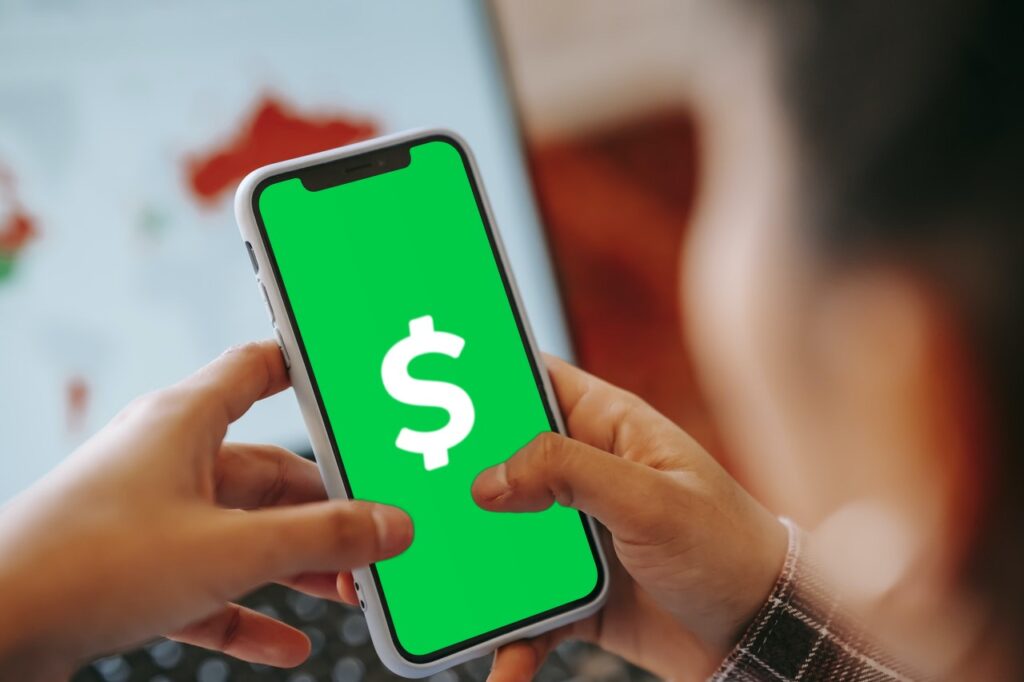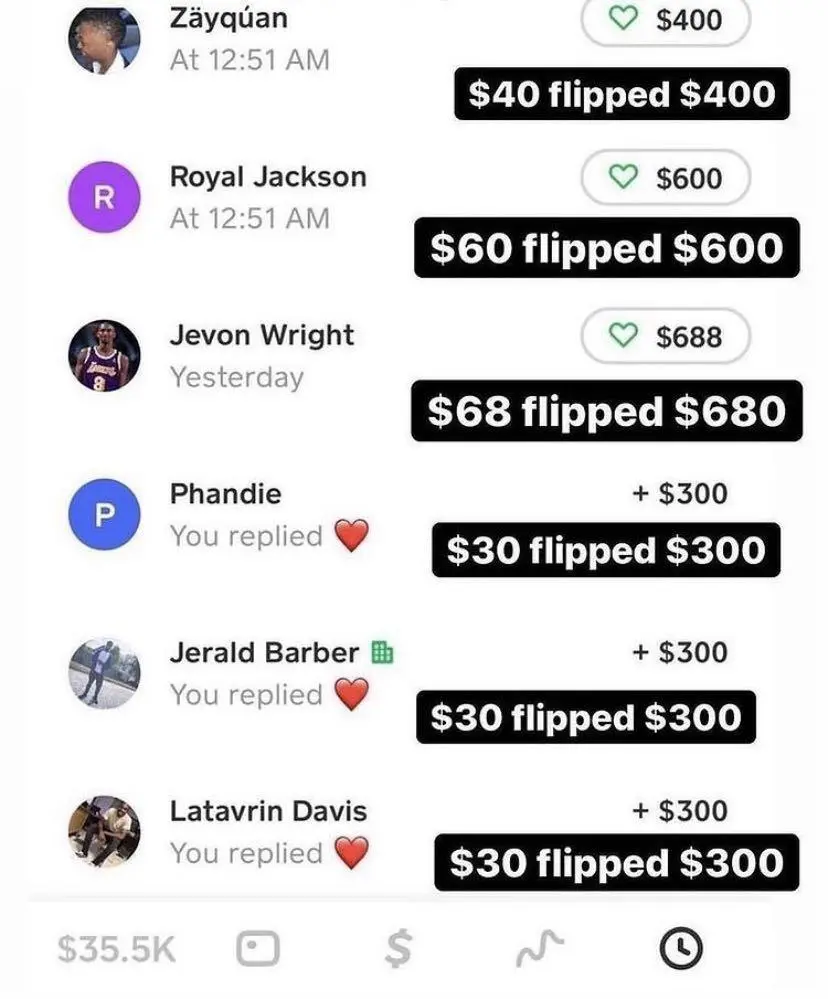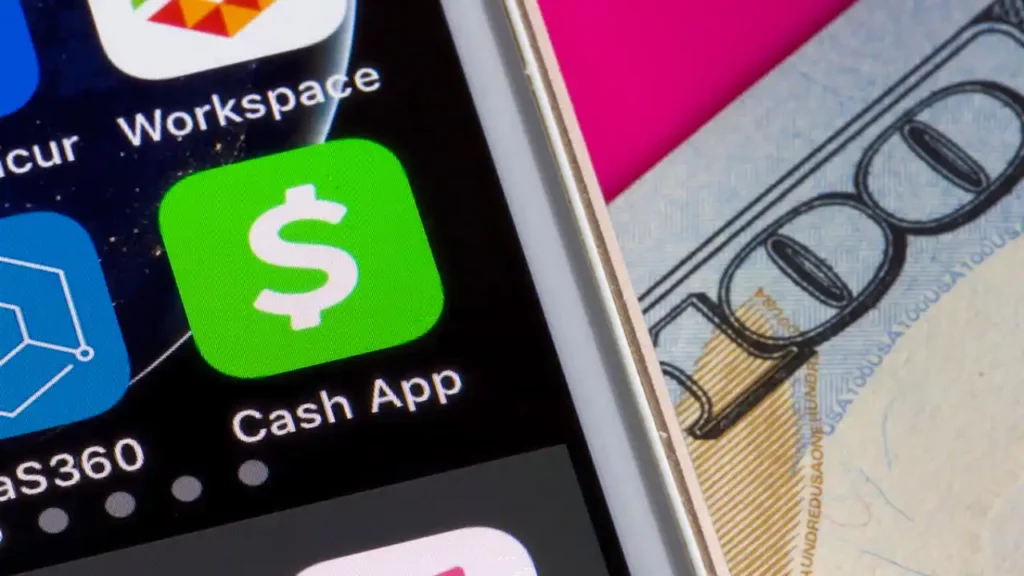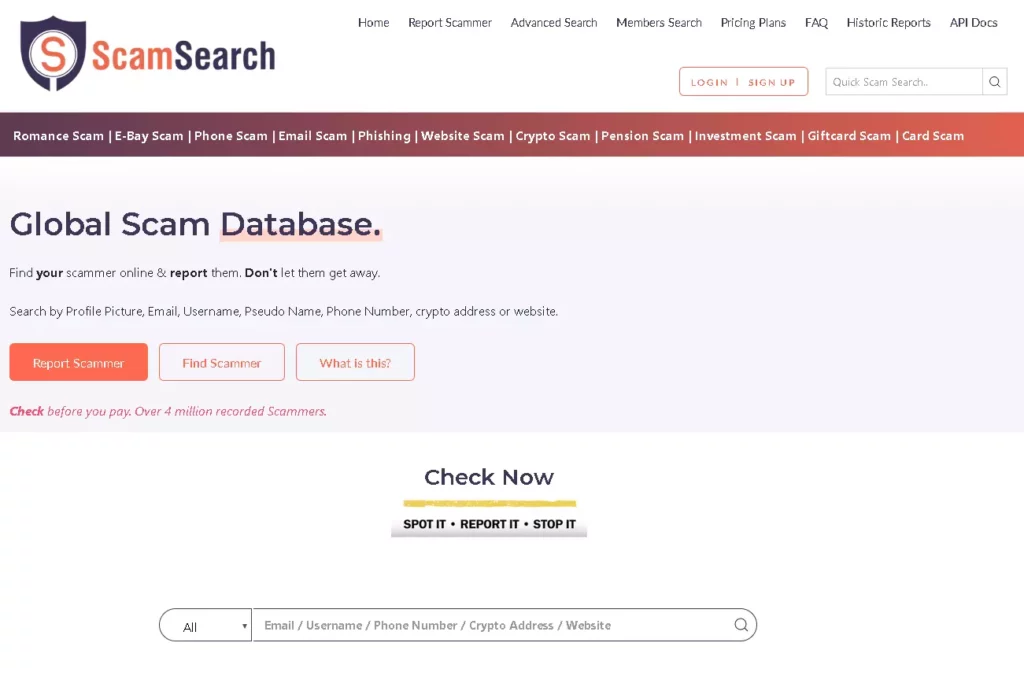Have you been Scammed?
Hey, have you ever been scammed or seen someone that has been a victim of cash app scams? Well, currently, the reality is, it’s pretty easy to get scammed when making online cash transactions. This is simply because the internet, with its vulnerabilities, plays a crucial role in digital payment solutions.
And yes, online transactions are the perfect idea for anyone who wants to save time while making a purchase or sending money. In fact, it’s easier and faster (it takes seconds) to make cash transactions using mobile apps. But besides faster transactions’ popularity increasing, the scams popularity is doing so as well.
Furthermore, the major drawback of online transactions is the rate of scams being reported. As of 2019, the FBI reported a loss worth $3.5 billion due to scams and crimes carried out on the internet. That’s a lot!

This article will discuss:
- Cash App scams,
- How you can avoid falling victim to Cash App money fraud,
- Steps you can take to report Cash App scams, and more importantly,
- How and where to report a cash App scam
- How to use ScamSearch to see if you’re dealing with a Scammer.
Top Cash App Scams
Internet scammers have mastered the art of Cash App scams. This allows them to con you while using the Cash App on your mobile device. If you are wondering what Cash App is, it is a mobile app that rose in popularity during the COVID-19 pandemic. This app facilitates the easy and fast transfer of funds between users.
Many Cash App users have encountered suspicious emails and giveaways that appear to be from Cash App. But are they authentic, though? Let’s find out.
Here is a look at the top Cash App scams today.
1. Fake customer care support
Cash App offers customer service only through the app or email and not via the telephone. Suppose a consumer calls the company through their number (1 (800) 969-1940) probably wouldn’t be answered. But instead, a recording will prompt them to seek customer support via app or email.

Scammers have taken advantage of this Cash App policy to impersonate the company. They reach out to users by sending direct messages on social media, texts, or even phone calls. These con artists have created phishing websites and tools. With these tools, they can easily steal users’ Cash App details and have set up fake Cash App service numbers. All these allow them to trick most victims into believing they are real.
Watch out for anyone asking for your Cash App PIN. In fact, the legitimate Cash App support will never ask a customer to provide their personal information, such as PINs, bank account details, or sign-in codes. Anyone asking for such sensitive information is probably attempting to commit Cash App money fraud on victims.
Also, Cash App support will not ask you to complete any form of purchase, transaction, or download any application. Visit Cash App’s official website to get the customer service contact.
2. The Cash App Friday offers
Cash App officially holds sweepstakes every week on Friday. This offer gives customers a chance to win cash prizes. However, there are dozens of fake Cash App Friday giveaways using the official promotional hashtag #CashAppFriday. Mostly, they do this on social media platforms like Instagram and Facebook. Fraudsters will send messages to users inquiring them to send a couple of dollars through Cash App. Furthermore, they can ask you to provide your login details for a chance to win, in which you will win nothing.
In case you want to be part of the official Cash App giveaways, it’s recommended to double-check the link given. You should also visit the official verified Cash App’s Twitter account for legit information about the giveaways.
3. Cash App flip scam
Another dangerous scam is the Cash App flip scam.
In fact, Cash App users are advised to be alert on the Cash App flip scam. This is a common scam on Instagram, Facebook, and Twitter. Usually, they ask you to send some cash, let’s say $10 to $1000, with a promise to double or triple your money.
The Cash App flip scam is a classic example of fraud in which it seems too good to be true to many. Nonetheless, some people still fall for this Cash App money fraud.
4. Fake Cash App Payment
This is one of the Cash App scams targeting online sellers. The scammer pretends to be a buyer of a certain product and sends a fake Cash App payment notification to the seller. After which, they promise that the balance will immediately reflect on Cash App after the package is sent or received. Scammers impersonating Cash App may claim that your account has received payment. They will execute this by sending you a notification via a fake Cash App email.
In some cases, fraudsters may claim that they’ve accidentally sent you some funds to your Cash App account and requests you to send it back. In other instances, they may offer to send you a chunk amount of money (usually a fake cash app payment) if you pay a small fee supposedly for processing the cash. Don’t be a victim; no money will be sent to you.
5. Cash App Account Security Alert Scam
This scam is one of the common Cash App scams used by scammers to commit Cash App money fraud. They send fake Cash App account security alerts via emails or text to victims. They usually claim that their (user) accounts have security issues that need some changes in credentials. And to “fix” the security issues, a victim is asked to go to the attached links.
These links will direct you to a fake Cash App phishing website where you will provide your login information unknowingly to scammers.
6. The Fake Apartment Scam
Con artists may use this trick to commit Cash App fraud by advertising fake apartments or rentals available for rent. They trick a victim into booking an apartment or a rental by sending a deposit via Cash App. Usually, these scammers claim to be out of town. Therefore, there are zero chances for you to tour the apartment of your liking. But to convince you into making a ‘deposit’, they claim to hold it for you once you book it.
7. Pet deposit scam
For pet lovers, do you want to buy a dog? Well, that’s adorable. But seriously though, you should consider adopting, here is why. You could potentially lose a sizeable amount of cash by trying to purchase a pet.
Pure dog breeds, for example, can be so expensive, and guess what? Scammers already know that. They rely on the determination people have to save money when buying things. Therefore, they try to sell purebred pets at insanely low prices. Scammers will ask for a deposit via Cash App to reserve the pet of your choice before somebody else buys it.
By the end of the day, you lose your deposit, and you never get a chance to see your dog. The best option is to adopt a dog from a local shelter to avoid Cash App fraud when buying a pet. Or ensure your potential pet seller is actually legit, and don’t pay anything upfront.
What is a cash app flip?

A Cash App flip, in the simplest form, is when Cash App is used to turn any amount of cash into more cash than the original amount. The basic principle of the Cash App flip is that, for a potentially higher reward, there is a higher chance of losing some or all of your investment cash.
So, how can you avoid a Cash App flip scam?
I will be honest with you. The term “Cash App flip” is generally associated with Cash App fraud. Even so, flipping money is real. The term “flipping money” has existed for a long time and, by definition, means taking money and turning it into more cash. Legally, there are many ways to flip money that doesn’t involve a Cash App flip scam.
But can you use Cash App flip to make money? Well, yes, you can.
I know you all want is to make a profit out of it. Furthermore, no one wants to lose cash, especially if invested. Therefore, here are five Cash App money flip ways that work differently from those cash app flip scams shared on social media.
1. Flipping $5 to $10 on Cash App
You can get $5 when you first sign-up on Cash App. To Cash App flip, you will be required to entire a debit card and send at least $5 to a Cash App user. Upon sending $5, you get an instant $5 bonus.
Do this trick with a friend and ask them to send you back the $5, and you can turn $5 to $10. This is a very simple Cash App money flip trick.
2. Flipping $5 into $30
For a higher cash bonus, Cash App offers you a $30 bonus when a friend signs up using your unique code. To activate the bonus, each referral should link a debit card. Also, they should use Cash App to send at least $5 within the first 14 days of signing up.
In fact, you can send $5 to a friend and have them send it back to activate bonuses all around. This trick is an easy way to earn that doesn’t involve a Cash App flip scam.
3. Flipping Bitcoin on Cash App
You can use the Auto Invest feature on the Cash App to flip Bitcoin. To do this, you will have to automate your account’s buying and selling options.
Automation is essential because it helps you earn and store the value of Bitcoin frequently. To use the flip Bitcoin automatic feature, you must invest a minimum of $10. Fees incurred during investing, such as government fees, are disclosed before confirming trades.
4. Flipping Stocks on Cash App
Cash App flip allows you to flip stocks by setting up recurring cash transfers. To achieve this, you need to set the Auto-invest feature to direct how much of your cash you’d like to invest and how frequently. This is definitely a great cash app money flip tactic to grow your funds by investing automatically in stocks.
5. Flipping Second-Hand Items
Heard of the saying, “One person’s trash could be another person’s treasure”?
Well, you can use Cash App to invest in cheap second-hand items, clean them and sell them to local clients. You can later turn your gains from selling these items into stocks or Bitcoin.
How to avoid getting scammed on Cash App?
Now that we know scammers can use Cash App to perform Cash App money fraud, how can you avoid Cash App scams? Here is how to avoid being scammed on Cash App.
- Put it in mind that Cash App DOES NOT offer live telephone support. Cash App’s listed number will recommend that you use the in-app chat platform to get help. Don’t engage with anyone on the phone claiming to be from Cash App.
- Constantly double-check the sender’s phone number or email address.
- Don’t fall for eye-catching giveaway events from unverified social media accounts.
- Avoid clicking links sent via emails or texts. But if you do, don’t fill in your information.
- Set up two-factor authentication and turn on notifications to get alerted on any unauthorized access to your account.
- Don’t give out your Cash App card number or PIN to anyone.
- Only transfer money to people you know and avoid making transactions with strangers.
- Watch out for products, prices, or services that sound too good to be true; most likely, they are.
How Frequent are Cash App Scams?
The rate at which Cash App scams have occurred in the past year is terrific. There have been tons of reports of victims who have been scammed on Cash App. According to Apptopia, a mobile-intelligence provider, Cash App fraud was up by 300% as of 2021.
That’s an alarming rate considering people are losing money to scammers. Some Cash App users reported to Yahoo Finance that hackers illegally accessed their Cash App accounts, and thousands of dollars were drained from their accounts. Well, that’s quite disappointing. Imagine losing your life savings to a stranger who didn’t break a sweat to get to your hard-earned money.
Another report to Yahoo Finance was from a businessman in California who was a victim of Cash App fraud. He lost $21,000 to scammers who used money from his Cash App account to buy Bitcoins. Apparently, they had created fake refunds (fake Cash App payment) involving the victim’s Cash App account to illegally move funds from his bank account.
The popularity of digital payment solutions has facilitated day-to-day payments between users. However, they have become a breeding ground for fraudulent scamming. On the flip side, though, you can stay extra vigilant by following the recommended guidelines discussed previously to avoid Cash App scams. That way, you can avoid being scammed on Cash App.
How do you report a Cash App Scam?

If scammers have ripped off your account pretending to be from Cash App Customer support. What do you do? Do you start panicking and hoping that you get your money back somehow?
Of course, that will not happen unless you take action.
First and foremost, if you find out that you have been scammed on Cash App, you need to cancel a payment on your Cash App account immediately. Say you noticed an unauthorized payment, and for some reason, you can’t cancel the transaction through the app. For this, you will need to contact Cash App Customer service to cancel the pending transaction. It will take 10 business days to get a refund once the transaction has been successfully canceled.
If you’ve received a suspicious email or text, you can report the incident to customer service on your app or cash.app/help. Cash App will take appropriate measures and investigate. For further guidelines on how to report Cash App scams, visit Cash App’s official site for recommended measures.
How can ScamSearch make Cash App Safe?

CashApp, like any App, has trouble working out who is the scammer and who’s decent. That’s why ScamSearche exists. ScamSearch is the largest public database of Scammer details online (verging on 10 million reported scammers). The site tracks and records all the available details of a scammer, such as an email address, username, phone number, crypto address, even the website the scammer tried to scam you on. It has one simple search bar that lets you search any of these, to see if anyone else in the world has been scammed by the same person. If they have….there will be a report.
You can also report your scammer on the site, which makes the world a little bit safer for everyone else!
More Resources
If you found this article useful, you may also be interested in:



